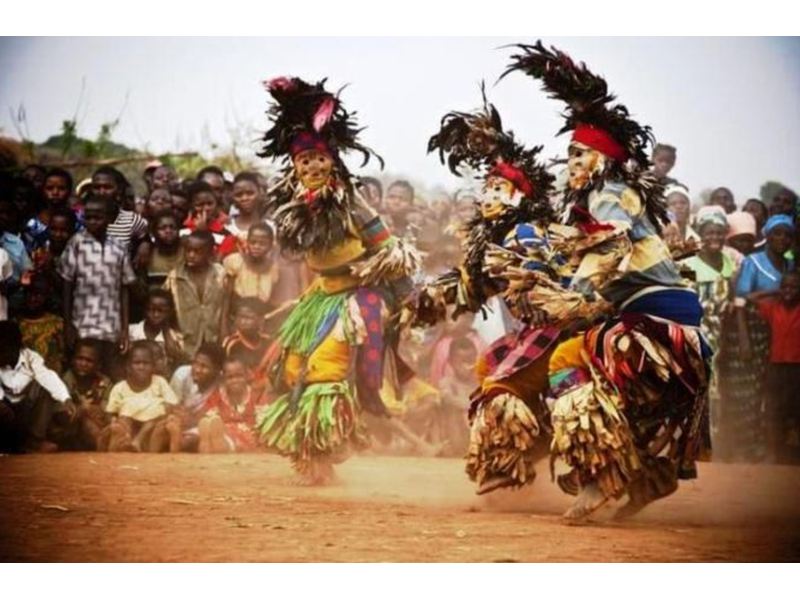(Harrymagalasi6, CC BY-SA 4.0 , via Wikimedia Commons )
Happy Independence Day, Malawi. Today in 1964, this Southeastern African country gained independence from the British. Today we are delving into the once-secret Malawian practice that persisted despite British colonialism: the Gule Wamkulu.
The Nyau brotherhood is a secret society that exists in Mozambique, Zambia, and Malawi, among the Chewa tribes. This society exists to encourage community among men from different villages.
Before British colonization, the Maravi Confederation ruled present-day southern and central Malawi. The Chewa tribes are direct descendants of the former Maravi Confederation groups.
Gule Wamakulu, which means ‘The Big Dance’, is a ritual dance that the Nyau practice. It involves men wearing masks and costumes made of wood and straw, and performing dances to the beat of a drum. Members of the brotherhood traditionally performed this dance as a closing ceremony for the initiation rite of passage for young men. During the performance, men present themselves in costumes portraying people like slave catchers, wild animals, spirits, and more. It used to be a secret dance ritual, only to be seen by members of the brotherhood. Nyau chapters have practiced this ritual as early as the 17th century, when the Maravi Confederation ruled a portion of Malawi.
The different representations that the male dancers embody exhibit different forms of mischief, and the performances serve to instill morality in the audience through expression and movement.

( National Archives of Malawi, CC BY-SA 4.0, via Wikimedia Commons )
Although Gule Wamkulu used to be a secret dance ritual, today, community members can watch the Gule Wamakulu dance at funerals, chief coronations, weddings, and other related events. The ritual is also put on for tourists.
This traditional teaching method indicates an artistic aspect of indigenous African education systems and serves as a reminder of the developed strategies of pre-colonial African societies that were utilized to enlighten and cultivate community and ethics for intergenerational communities.
Witness the Gule Wamkulu dance here.
Works Cited
https://ich.unesco.org/en/RL/gule-wamkulu-00142
https://www.britannica.com/place/Malawi/History





